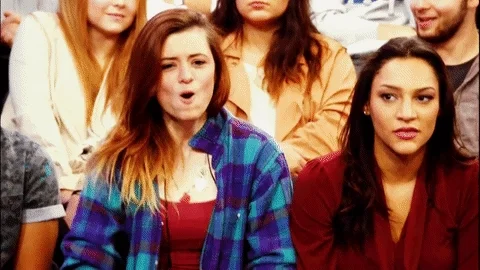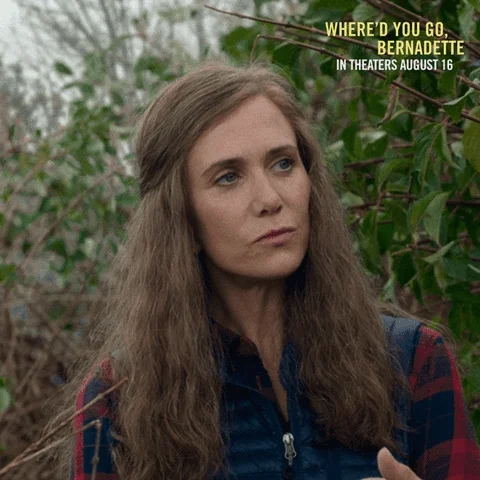As one of those “nostalgic diaspora” that I would argue is the primary audience for Banshees (and maybe also An Cailin Ciuin, though I’ve not been able to see this film yet), I’ve been struggling with what I think about that film, given what @robertmckenna has discussed about the problems of McDonagh as a director with regards to his embrace of Irish stereotypes… I won’t say I didn’t enjoy aspects of the film, as I did. It’s obviously a gorgeous setting. The actors are all excellent. I love that Siobhan gets away at the end and doesn’t really look back, despite her obvious concern for her brother. But there is the major problem of the film just being one stereotype after another…
I liked the sort of storytelling involved. It was a small kind of story (which many see as a metaphor for the Civil War - maybe McDonagh said as much?), which tells a self-contained story of just sort of normal people (if that makes sense). How are people going about their lives, making meaning out of the world, struggling to improve their lot in life, failing (all the men) or succeeding (Siobhan), while coming up against how the society that they are living in expects them to be…
Which is where the stereotypes come into play. People are slotted into particular roles, and often not given the space within the story to be anything more than a stereotype. I think McDonagh tried to do that with Dominic, but failed pretty miserably. As despite all the revelations about the abuse he suffers, he’s still just played for laughs as the town drunk… You could say the same about Mrs. McCormick - who predicts that death is coming. She has no development, other than that stereotype of the old Irish woman, wrapped in a traditional head covering, predicting the future. The cop (Dominic’s father) and the shop owner/ post mistress / town gossip are also little more than stereotypes… and the pub owner… etc…
But I also kind of wonder if the conflict between Colm and Padraic was really a distraction from the real heart of the story, the differing fortunes of Siobhan, who manages to make her escape to the mainland to be a librarian (despite the best efforts of her brother, and the town gossip, and of Dominic, to keep her there by tying her emotionally) and of Dominic who ends up dead, and it’s not entirely clear to me if he died in an accident or if he committed suicide. I’m guessing the former, given that he’s the town drunk, and they kept having scenes where he’s on the edge of a cliff or some kind). Maybe that’s the real story and not the stupid fight between Colm and Padraic.
So, one interpretation that I’ve seen, that’s in the comments, is that it’s a metaphor for the uselessness of the Civil War in the 20s. Of course, that’s heavily implied by the occasional gunfire from the mainland and mention of the war on the island. One comment called the civil war “useless”. But does this do a disservice to the history of the war, and to the centuries long movement to free Ireland from colonization by the British? If that was his intent, to show a useless struggle between the two main characters and have that as a stand-in for the civil war, then yeah, it’s a huge disservice to understanding that part of Irish history which continues to have a major impact on politics on Ireland (and in the UK) today. We know it was not a “pointless” war because people gave explanations and reasons, and debated those among themselves and between the sides in the war. They all had reasons for their actions, and to dismiss it as “pointless” just reinforces the most troubling colonial stereotypes of Irish people - that they were wrong to demand freedom from colonization, and that the British were right to use violence to keep them under control - because Irish people are unaccountably violent and not suitable for the status of national independence. They are the equivalent of the racist backwoods white inbred hick in a film like Deliverance, who are seen violently violating the more urban, properly masculine southern men from the cities, pulling them back into the past (at the very same time, that that past is being erased by the violence of building a dam - which I think was a stand-in for the building of the dam that created lake lanier). Colm cutting off his fingers despite being violin player is incredibly dumb, and pointlessly violent, especially since it leads to the death of Padraic’s beloved donkey Jenny. Like, why was that his tactic to get Padraic to leave him alone? It’s just stupid. Padraic’s response is equally stupid (but at least he saved the dog!). But if we take seriously that it’s a metaphor for the civil war, how can we help but walk away from the film believing that the conflict is stupid, as was the conflict between the two men?
I also wonder what is the point of peddling these stereotypes to the “nostalgic diaspora”? Given that McDonagh is himself part of the diaspora, is this just how he sees the land of his parent’s birth? Does he see it as nothing but a land of stock characters with no depth or complexity? Or is his leaning into such stereotypes really him trying to create a sense of greater truth, as we all sort of accept of folk tales or mythologies? I’m not convinced on thinking about it that he is trying to honor his heritage by making stock Irish stereotypes into mythological figures that tell us something deeper about humanity. After all, his main characters engage in a stupid conflict that only leads to stupid outcomes (a fiddle player with no fingers on one hand and a dead beloved pet, and a “dull” man with a previously sunny disposition descending into a less dull, but meaner person).
One question I had is who are the audience supposed to identify with, and perhaps it’s really Siobhan, especially if this is meant to be a film that is address to us “nostalgic diaspora”. Maybe her “escaping” from a village mired in traditional “culture” (or a stereotype of that culture) that only does violence to the inhabitants is meant to celebrate our ancestors who left all that behind for a more modern, fulfilling life. She seems to be the only one who can see past what is to what could be. To me, that really reinforces the idea of this being a film aimed at the diaspora, the people who “got away” from the weight of Irish history and tradition by going to some where that they can really flourish as human beings (impossible in a village like this). It seems to me that it really downplays the actual reasons why so many people left over successive generations. It wasn’t just to lead a more fulfilling life. It was to actual LIVE a life at all, with some semblance of freedom. Leaving was often a byproduct of colonial violence, especially people who left during the famine or in the aftermath of it (although waves if ex-migration continued into the late 20th century, from both the Republic and Northern Ireland). It pins the blame instead directly on traditional culture and the irrationality of Irish people. He only gives Siobhan full agency (even as she’s also a stereotype of the tough, Irish woman, taking no shit), but only by allowing her to make the choice to leave and go somewhere “better”.
Anyway… this is probably full of shit, but there you have it!
[ETA] Given what I just wrote… I wonder if a comparison to Belfast might be more apt here, since it’s also a film about the diaspora, told in a more sympathetic way that doesn’t dismiss the role of Ireland’s history as a British colony, but instead puts that at the heart of people making the choices they did with regards to leaving.





